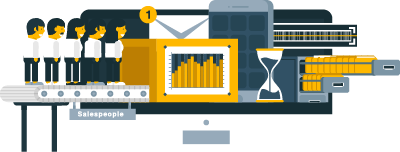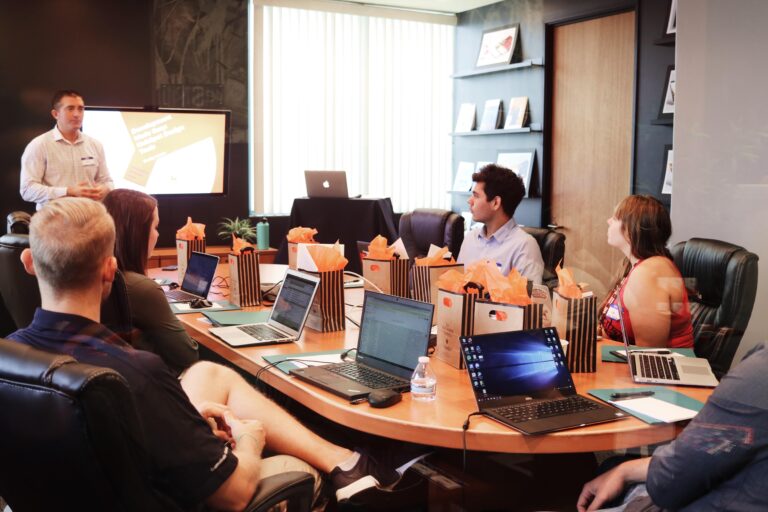Talk to Sales: (401) 200-6026
Motivated BHPH dealers can increase and improve their used inventory by putting these essential auto auction tips into action
As a Buy Here, Pay Here (BHPH) auto dealer, you fill an important void in the industry. For individuals who can’t just walk into a dealership and get a new car — or even a used car that’s a few years old — financed, you provide more affordable vehicle options.
You’ve been slowly building your inventory by buying trade-ins and reselling your repossessed vehicles, but like most BHPH dealers, you’re undoubtedly always on the lookout for a new addition to your lot. If you haven’t already, it’s time to start thinking about jumping into the world of the auto auction. Tips for getting your feet wet are featured below, so be sure to read them thoroughly — if you approach auto auctions the right way, your dealership should see profits begin to climb quickly.
Types of auto auctions you may want to attend
![5 Auto Auction Tips for BHPH Dealers 2 01-XX [Auto Auction Tips] for BHPH Dealers-01](https://bunny-wp-pullzone-6rrrmryvox.b-cdn.net/wp-content/uploads/2016/09/01-XX-Auto-Auction-Tips-for-BHPH-Dealers-01-300x300.png) Auto auctions aren’t a one-size-fits-all kind of deal. They can vary greatly when it comes to the selection and quality of vehicles, size of the venue, and amount of participants and employees. You could walk into an auction that involves multiple buildings, thousands of people, and even includes services like on-site repair shops and titling assistance. Or, you could find yourself in one small building with a couple lanes of cars and a handful of eager dealers.
Auto auctions aren’t a one-size-fits-all kind of deal. They can vary greatly when it comes to the selection and quality of vehicles, size of the venue, and amount of participants and employees. You could walk into an auction that involves multiple buildings, thousands of people, and even includes services like on-site repair shops and titling assistance. Or, you could find yourself in one small building with a couple lanes of cars and a handful of eager dealers.
One auction isn’t necessarily “better” than another; it’s up to you to decide what will fill your dealership’s inventory needs in the most efficient way. In general, these are the types of used car auto auctions that you have access to:
- Wholesale auto auctions: These are the most common auctions for licensed auto dealers because they are not open to the general public. When you hear another dealer talking about vehicles they bought at auction, they likely went the wholesale auto auction route.
- Insurance and salvage auto auctions: If you have the mechanical know-how and patience, these auctions provide an opportunity to purchase “totaled” vehicles and flip them for a profit.
- Public and government auto auctions: Most cities hold public auctions to sell used police cruisers and other government vehicles, as well as vehicles that were seized or forfeited from criminals or those who haven’t paid taxes.
- Online auto auctions: If you don’t have the means to travel around the country for auto auctions, online auto auctions can give you access to a wider range of inventory to bid on. The only catch? You can’t see (or hear) the vehicle in person until it arrives on your lot, making the purchase a crapshoot.
A lot can go into choosing the type of auto auction you want to attend, but how your tackle the auction itself will determine whether you sink or swim.
5 auto auction tips if you’re ready to buy
![5 Auto Auction Tips for BHPH Dealers 3 03-XX [Auto Auction Tips] for BHPH Dealers-01](https://bunny-wp-pullzone-6rrrmryvox.b-cdn.net/wp-content/uploads/2016/09/03-XX-Auto-Auction-Tips-for-BHPH-Dealers-01-300x300.png) No two auto auctions will ever be the same, but as a beginner, just remember that the end goal will always be the same: you want to get the best deal possible for a good, quality used vehicle.
No two auto auctions will ever be the same, but as a beginner, just remember that the end goal will always be the same: you want to get the best deal possible for a good, quality used vehicle.
1. Plan ahead
You probably never listened to that old scout motto of “be prepared,” but if you’re heading to an auto auction, now is the time. Most reputable auto auctions will give you access to a list of the inventory ahead of the main event. Study that list, zero in on vehicles you’re interested in, run their VINs and do your homework. Know what you’re willing to pay so you don’t let the frantic energy of the auction get the best of you when it’s time to bid.
2. Make friends
Put those schmoozing skills to work and try to build relationships with the folks working the event. You aren’t going to have everyone high-fiving you by the end of your first auction, but if you develop a reputation among auctioneers and other auction employees as being a positive, friendly buyer, you’ll be amazed at the doors that will open for you. If you’re only going to remember one of these auto auction tips, this is the most important.
3. Perfect your poker face

This obviously doesn’t apply to online auctions, but in person, you don’t want to reveal your true feelings about a vehicle on which you’re bidding. Go in slowly, see how others are bidding, and get a feel for the crowd. You’ll be more likely to place a successful bid if you keep your emotions under control.
4. Look for red flags
As a BHPH dealer, you may look for vehicles that are six to 10 years old and that may clock in around 120,000 to 140,000 for mileage. Unfortunately, these are also the types of vehicles that can also have a lot of hidden defects. Sellers may try to cover up problems, so look for red flags like sheet metal that isn’t smooth, paint overspray, puddles under the vehicle, or a musty smell inside. If you’re able to, pull the oil and transmission fluid dipsticks — if they’re clean, the car was probably well-maintained.
5. Budget for extra costs
When deciding how much you’re willing to pay for certain vehicles, remember that if have the winning bid, you’ll be on the hook for some additional fees. One of the biggest costs can be transporting your vehicles back to your dealership. If the auction is local, you may be able to get away with a small fee if you’re able to bring your own tow or flatbed truck. However, if the auction is not close by, you’ll need to arrange transportation services, which are usually available in the auction house.
Want some of the best auto auction tips?
If you’re new to buying cars in auctions, you’ll probably get some of the best auto auction tips for your peers. Talk to other car dealers that you know and respect who have been in the auction game for a while and pick their brains. Do your homework before you start bidding in auctions — in fact, try to attend a couple of auctions initially just to observe the crowds, the style of the auctioneers, and the types of cars that sell.
If you’re well-prepared for your first auction, there’s a good chance you’ll have a positive experience that will positively impact your BHPH dealership’s bottom line.
Interested in an Affordable, Full-Featured Auto Dealer CRM?
Schedule an AutoRaptor Demo Now!



![5 Auto Auction Tips for BHPH Dealers 1 00-XX [Auto Auction Tips] for BHPH Dealers-01](https://bunny-wp-pullzone-6rrrmryvox.b-cdn.net/wp-content/uploads/2016/09/00-XX-Auto-Auction-Tips-for-BHPH-Dealers-01-1024x439.png)
